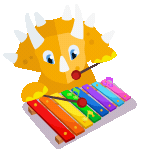Say It Right! Tiny Changes That Make Big Meaning in Hungarian
In Hungarian, just one letter or sound can completely change a word’s meaning. That’s what makes learning this language both fun and powerful especially for curious kids!
One Sound, Many Meanings
Hungarian uses small shifts like accents and endings to change words. For example:
- kor means “age”
- kör means “circle”
- kert means “garden”
- kért means “asked”
Even small changes like double letters or vowel accents can switch up the meaning. It’s like language magic!
Why Kids Love This Language Trick
Kids enjoy seeing how words transform and guessing what the changes mean. It helps them become more aware of sounds and spelling—and boosts memory, too.
Activities for Sound-Smart Learning
Spot the Difference
Give kids pairs of similar words (like kor/kör) with pictures. Can they match them to the right meaning?
Silly Sentence Challenge
Ask kids to use two similar-sounding words in one funny sentence. It’s great practice and always gets laughs.
Dinolingo introduces sound-based word differences in a natural way. Through songs, stories, and repeat-after-me games, kids start to notice the patterns without even realizing it. Learners ages 2–14 gain confidence with each new word they master.
With access on the web, iOS, and Android, Dinolingo offers structured fun with cultural depth—making Hungarian learning full of aha moments.
Sources:
Start Learning a New Language Today!
Best Language App for Kids.
7-day free trial. Then only $19/month. Cancel anytime.
